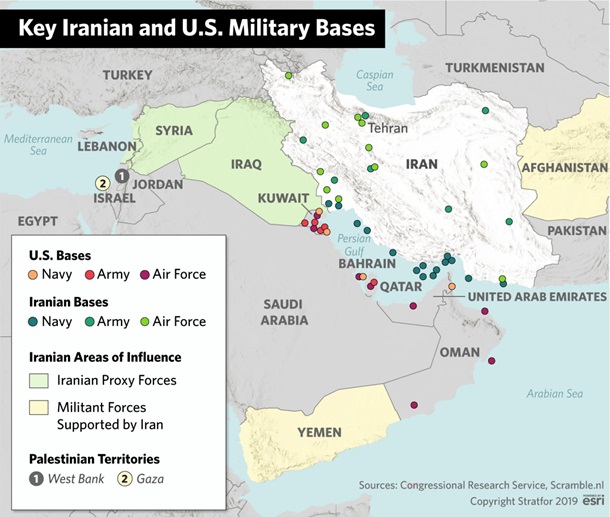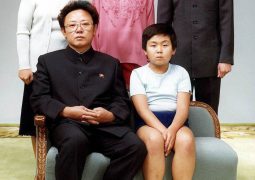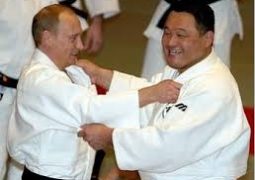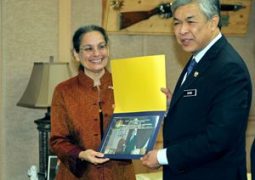Trump Threatens ‘Obliteration’ of Iran, as Sanctions Dispute Escalates

WASHINGTON — President Trump warned on Tuesday that any attack Iran might carry out “on anything American” would result in the “obliteration” of parts of Iran, responding angrily to comments by President Hassan Rouhani that the White House was “mentally handicapped.”
The sudden exchange of threats and insults was at least a temporary setback to Mr. Trump’s earlier efforts to de-escalate the confrontation and move toward negotiations.
After his decision last week to call off a military strike in retaliation for the downing of an unmanned reconnaissance drone, Mr. Trump had held out the possibility of negotiations with “no preconditions” and said he was not looking for war, even as he insisted that Iran would never be allowed to possess a nuclear weapon.
The president’s belligerent comments stood in contrast to the message delivered on Tuesday by other administration officials, who reiterated that the United States wanted to negotiate. “The United States is not looking to go to war with Iran,” said Mark T. Esper, the acting defense secretary. “Rather, we want to get to a diplomatic path.”
But Mr. Rouhani said on Tuesday that the new sanctions Mr. Trump ordered this week against Iran’s supreme leader, Ayatollah Ali Khamenei, and other senior officials had made it impossible to enter into any talks.
Mr. Trump wants to renegotiate the 2015 nuclear accord agreed to by Iran, the Obama administration and many of the world’s other big powers that constrained Iran’s nuclear program. Mr. Trump pulled out of the deal last year, saying it left Iran too much opportunity to get a nuclear weapon and did not do enough to deter the country’s aggression in the Middle East.
“Today, the Americans have become desperate and confused,” Mr. Rouhani said in a televised address. “This has made them take unusual measures and talk nonsense.”
John R. Bolton, President Trump’s national security adviser, appeared to simultaneously invite Iran into negotiations while demanding complete capitulation.CreditOded Balilty/Associated Press
Image
John R. Bolton, President Trump’s national security adviser, appeared to simultaneously invite Iran into negotiations while demanding complete capitulation.CreditOded Balilty/Associated Press
Mr. Trump’s threat, issued by tweet, reflected the administration’s “maximum pressure” strategy.
But there is no sign yet that Iran will be willing to capitulate to Mr. Trump’s demands. And his tone on Monday was the latest in a series of shifts that saw him issue an earlier warning of “obliteration” over the weekend but also explain only five days ago that he pulled back on the retaliatory strike because the deaths that would result in Iran were “not proportionate to shooting down an unmanned drone.”
ADVERTISEMENT
That standard of proportionality appeared to have been set aside on Tuesday when Mr. Trump wrote on Twitter: “Any attack by Iran on anything American will be met with great and overwhelming force. In some areas, overwhelming will mean obliteration.” He called Mr. Rouhani’s comments “ignorant and insulting.”
Mr. Trump has at times shown a remarkable willingness to move past an exchange of insults. After he threatened to destroy North Korea with “fire and fury,” the country’s leader, Kim Jong-un,responded by calling Mr. Trump “mentally deranged” and a “dotard.” Months later, the two leaders met for face-to-face talks, though the negotiations have stalled.
But Iran is a different political entity from North Korea, one with multiple power centers. And it was notable that the most blistering critique of Mr. Trump and attacks on his mental capacity came from the moderate wing of the Iranian political system. The nuclear program is run by the more hard-line Islamic Revolutionary Guards Corps, which viewed the 2015 accord as a giveaway to the United States.
Within days, Iran said last week, it will have breached a key limit in the 2015 deal that restricts the country’s stockpiles of low-enriched uranium to 300 kilograms, or about 660 pounds. If that level is breached, it will be the beginning of the unraveling of the Iran deal on Tehran’s side; it already unraveled in Washington, where administration officials say that to Mr. Trump, the agreement is dead and buried.
“Iran leadership doesn’t understand the words ‘nice’ or ‘compassion,’ they never have,” Mr. Trump continued in his flurry of tweets. “Sadly, the thing they do understand is Strength and Power, and the USA is by far the most powerful Military Force in the world.”
Mr. Trump has sought to leave open a variety of options for pressuring Iran. A senior administration official said that after weekend meetings at Camp David, the White House had directed the intelligence agencies and the Pentagon — including the United States Cyber Command — to “start pushing proportional options” to Mr. Trump’s senior aides for consideration.
Mr. Trump signed an executive order on Monday imposing sanctions on Iranian officials, a move that Tehran ridiculed.CreditGabriella Demczuk for The New York Times
But he also faces a delicate balancing act with allies, especially those in the region. While Saudi Arabia and the United Arab Emirates have publicly supported the administration’s “maximum pressure” campaign, senior officials from both countries privately told Secretary of State Mike Pompeo during his recent visit that they do not want a war with Iran.
In such a shooting war, the senior administration official said, those two countries would most likely bear the brunt of the repercussions. They fear that if Mr. Trump were to lose his re-election campaign, they would be left with a war the United States would want to exit.
The United States wants Iran to commit to a long list of new restrictions, including limits on any potential development of a nuclear weapon that go far beyond what got negotiated in years of talks between the Obama administration and Mr. Rouhani’s government.
But Iran’s foreign minister, Mohammad Javad Zarif, has repeatedly said that in order to negotiate a new accord the United States would first have to re-enter the old one. Mr. Trump has rejected that, saying a new agreement must be built from scratch.
For years, despite considerable evidence to the contrary, Iran has said that all of its nuclear work is for peaceful civilian purposes, but it had accepted limits on its nuclear efforts in exchange for sanctions relief under the 2015 agreement. Iran agreed to suspend all significant uranium enrichment work until 2030, even though it can resume some research and manufacturing of nuclear equipment earlier.
Now those restrictions appear to be gone. The Iranian position has hardened as the Trump administration tightened its sanctions six weeks ago in an effort to cut off all international sales of Iran’s oil, the lifeblood of its economy.
Iran, however, boasted last week of shooting down the American surveillance drone. The United States has said that the drone was in international airspace, while Iran maintains that the aircraft was over its territory.
Nikolai Patrushev, Russia’s national security adviser, supported Tehran’s account, the Russian news agency Interfax reported. “I have information from the Defense Ministry of the Russian Federation that the drone was in Iran’s airspace at the time,” Mr. Patrushev said on Tuesday in Jerusalem, where he was attending the same summit meeting as John R. Bolton, Mr. Trump’s national security adviser.
The sanctions added by the United States this week are intended to prevent Mr. Khamenei and other officials from entering the United States or using the international banking system. But the move is largely symbolic.
Mr. Rouhani ridiculed the effort, noting that the supreme leader never visits the United States or does business with it.
“Tehran’s strategic patience does not mean that we are afraid,” Mr. Rouhani said, according to the Mehr news agency. “We do not fear America, and have shown restraint so far.”
On Tuesday, Mr. Bolton appeared to simultaneously invite Iran into negotiations while demanding complete capitulation.
Accusing Iran of a “continued pursuit of deliverable nuclear weapons” despite the deal reached in 2015, Mr. Bolton said that Mr. Trump now sought “real negotiations to completely and verifiably eliminate Iran’s nuclear weapons program, its pursuit of ballistic missile delivery systems, its support for international terrorism and its other malign behavior worldwide.”
Mr. Rouhani and other Iranians have said the mixed messages and coercive tactics from the Trump administration belie its professed desire to negotiate.
Correction: June 25, 2019
An earlier version of this article translated Mr. Rouhani’s description of Mr. Trump as “mentally retarded,” and the article was revised to reflect a better translation, “mentally handicapped.” The error was repeated in a video caption.
David E. Sanger reported from Washington, David D. Kirkpatrick from London and Isabel Kershner from Jerusalem. Edward Wong, Eric Schmitt and Thomas M. Gibbons-Neff contributed reporting from Washington.
- Previous More Australians trust Xi Jinping than Trump
- Next Asean to jointly bid to host 2034 FIFA World Cup










